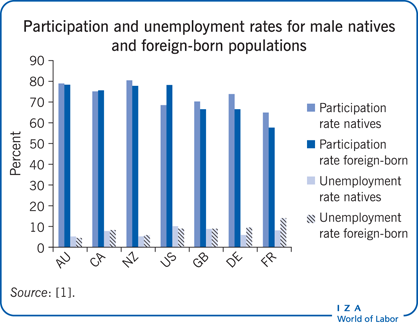Elevator pitch
Restricting immigration to young and skilled immigrants using a point system, as in Canada, Australia, and New Zealand, succeeds in selecting economically desirable immigrants and provides orderly management of population growth. But the point system cannot fix short-term skilled labor shortages in a timely manner nor prevent poor labor market outcomes for immigrants, since domestic employers can undervalue schooling and work experience acquired abroad. Furthermore, the efficacy of a point system can be compromised if unscreened visa categories receive higher priority.
Key findings
Pros
A point system acts as an effective binding constraint on applicants.
Individual applicants are selected according to the objectives set by the country of destination.
A point system elicits better quality immigration candidates.
The initial phase of the immigration process is streamlined, requiring fewer resources to process valid applications.
The assessment process is transparent.
Cons
Comprehensive and regular data collection is needed for policy evaluation and fine-tuning.
Applicants are selected solely from observable characteristics, not from unobservables like innate ability or attitude.
Successful applicants may still end up in jobs and at pay levels below their true potential.
A point system is unsuitable for providing fast responses to skill shortages in the domestic labor market.
The effectiveness of a point system can be compromised if higher priority is given to unscreened classes of applicants.
